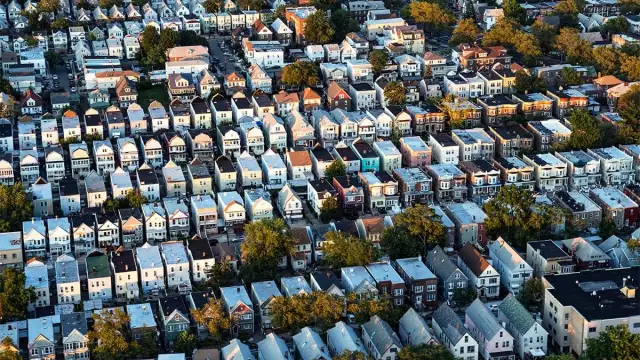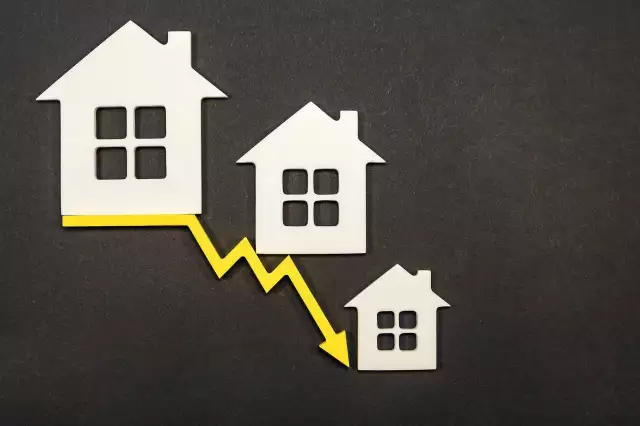Housing Markets Where Prices Will Fall in the Recession 2022
Housing Markets Where Prices Will Fall in the Recession 2022
Where Are Housing Prices Falling 2022: When Recession Hits
Redfin revealed its “risk score” on Friday, which identifies the home markets that are most vulnerable to a “housing slump.” The greater a market's “risk score,” the more likely it is that house prices will fall year over year. Redfin examined 98 regional housing markets and evaluated indicators such as home-price volatility, average debt-to-income ratio, and home-price growth. Among the 98 markets measured by Redfin, Riverside had the highest likelihood of seeing a “housing downturn.”
It was followed by Boise, Cape Coral, North Port, Las Vegas, Sacramento, Bakersfield, Phoenix, Tampa, and Tucson. Popular migration destinations where home prices soared during the pandemic, such as Boise, Phoenix, and Tampa, are most likely to see the effects of a housing downturn amplified and year-over-year home prices decline if the economy enters a recession, a scenario that some economists believe is likely as inflation persists and stock markets stumble.
Homeowners in those markets who are considering selling should market their properties as soon as possible to avoid price drops. Rust Belt cities like Cleveland and Buffalo, which are still inexpensive, are the most resilient to a housing market crash. The U.S. housing market slowed significantly in the spring due to rising mortgage rates. Redfin studied which metros are most vulnerable to home-price reductions if the country enters a recession and which are most immune to an economic slump.
Recession-proof northern metros, including Cleveland and Buffalo, NY, are relatively inexpensive. Prospective homebuyers in these places can proceed with confidence. Redfin's examination of 98 U.S. metros with relevant data utilizes home-price volatility, average debt-to-income ratio, and home-price growth. Each metro is given an overall risk score relative to the others. 100 indicates the highest possibility of a housing market slump, including home-price decreases, while 0 indicates the lowest.
“Recession fears are escalating, mostly because the Fed has signaled it will continue to raise interest rates to tame inflation and cool consumer demand. Higher interest rates led to surging mortgage rates, which have already cooled down the housing market,” said Redfin Senior Economist Sheharyar Bokhari. “If the U.S. does enter a recession, we’re unlikely to see a housing-market crash like in the Great Recession because the factors affecting the economy are different: Most homeowners have a fair amount of home equity and not much debt and unemployment is low.”
Housing Markets at Risk of Falling Home Prices
If the U.S. enters a recession, Riverside's home market will chill the most. It has the highest danger score of any major U.S. city, 84. It's more likely than other metros to see prices drop year over year during a recession or economic slowdown, according to housing and economic statistics. Riverside, which includes San Bernardino, Ontario, and Palm Springs, has variable house values and was a favorite location during the epidemic for both permanent movers and second-home buyers.
Riverside is followed by Boise (76.9), Cape Coral, FL (76.7), North Port, FL (75), and Las Vegas (74.2).
Sacramento, CA (73.1), Bakersfield, CA (72.2), Phoenix (72), Tampa, FL (70.7), and Tucson, AZ (70.1) round out the top 10.
Many of these housing markets, like Riverside, are popular migration destinations or have quickly growing property prices, both of which increase their likelihood of a housing slump. Boise, Cape Coral, North Port, Las Vegas, Sacramento, and Phoenix were among the 20 fastest-cooling areas in May when mortgage rates reached 5.5%. As the economy continues to decline, prices may fall in many of these metros. Six of the 10 areas most at risk of downturns are among the most popular destinations for Redfin.com users moving from one metro to another.
Maricopa County (Phoenix) and Riverside County gained more residents from other parts of the U.S. than anywhere else in 2021, according to the U.S. Census. The most vulnerable metros have likewise seen an outsized price rise. North Port has the nation's fastest-growing house values, up 30.5 percent year over year in May, followed by Tampa (28.1 percent) and Las Vegas (26.8 percent ). Overall, nine of the ten most vulnerable locations had faster-growing house values than the national median (the exception is Sacramento, however, home prices there rose more than 40% throughout the pandemic, reaching $610,000 in May 2022).
Several of those metros went from inexpensive to unaffordable during the epidemic, owing in part to the migration of individuals from other locations. Among them is Boise, where the typical home price increased from $330,000 to $550,000 between May 2020 and May 2022, and Phoenix, where it increased from $300,000 to $485,000.
“Boise’s market is already turning around, as a lot of the people who moved to Idaho during the pandemic are either moving back to their hometowns or cashing in and moving to more affordable places. The housing market was hot during the pandemic, largely because of out-of-town buyers,” said Boise Redfin agent Shauna Pendleton.
Three at-risk metros are in California and three in Florida. San Jose, Oakland, and San Francisco experienced relatively moderate price increases throughout the epidemic, its people tend to have high salaries and considerable home equity, and their housing markets started falling fast in the first half of 2022, mainly owing to collapsing tech stocks. Not all homes in these metros will lose value. Large single-family houses in spread-out areas are recession-proof.
Housing Markets in Which Prices Are Unlikely to Fall
Relatively affordable Rust Belt metros are most resilient in the face of a recession. In case of a recession, Akron, Ohio has the lowest risk of experiencing a housing decline. It has the lowest total risk score of any major US city at 29.6. Low home-price volatility, a low debt-to-income ratio, a small number of second houses, and the fact that properties in Akron are unlikely to be flipped are some of the characteristics that make the city relatively stable.
With an overall risk score of 30.4, Akron is followed by Philadelphia, Montgomery County, PA (31.4), El Paso, TX (32.2), and Cleveland (32.4). The top ten include Cincinnati (32.6), Boston (32.6), Buffalo, NY (33.1), Kansas City, MO (33.4), and Rochester, NY (34.4). Almost all of those metros are inexpensive and have relatively slow-increasing prices, both of which would benefit their housing markets in the event of a recession.
Almost all of the most resilient metros are located in the northern United States, either in the Rust Belt or on the East Coast. Three of them are in Ohio, two in New York, and two in Pennsylvania. In nine of the ten most resilient metros, prices climbed at a slower rate than the national average (El Paso is the exception).
Seven of the 10 metros least in danger of a housing downturn had a median sale price below $300,000 in May, and nine of them were below the $431,000 national median. Affordability benefits property markets in a recession because more people can buy houses, and such locations may attract out-of-town buyers. Boston is pricey, although property prices climbed modestly throughout the epidemic. It's busy and lost residents as remote work became prevalent.
U.S. Metros Most and Least Susceptible to a Housing Downturn in the Next Recession
Ranked by highest to the lowest chance of a housing downturn. The ranking combines 10 indicators to come up with an overall risk score for each metro, relative to the other metros in this analysis. The highest possible score is 100 and the lowest possible score is 0. The indicators are as follows: home price volatility, average debt-to-income ratio, average home-loan-to-value ratio, labor market shock, percent of homes flipped, how much the housing market is “cooling” compared with other metros, the year-over-year change in domestic migration, the share of homes in the metro that are second homes, year-over-year price growth and elasticity of supply. Each factor is weighted equally.
Source: https://www.redfin.com/news/metros-recession-risk-housing-downturn-2022/






